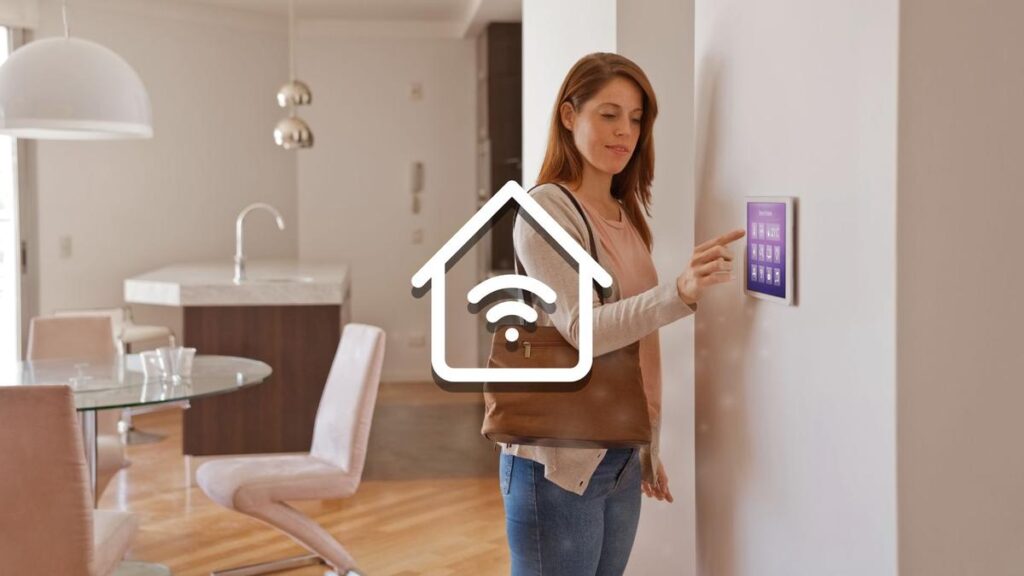
Managing multiple smart home users effectively for seamless living
In the era of digital transformation, smart homes have become a cornerstone of modern living. They offer unparalleled convenience, security, and efficiency. However, as more households embrace smart home technology, the challenge of managing multiple smart home users becomes increasingly significant. Understanding how to effectively navigate this aspect can elevate your smart home experience to new heights.

Understanding multiple user management in smart homes
Managing multiple users in a smart home involves setting up and coordinating various devices and systems so that everyone in the household can access and control them seamlessly. This includes everything from lights, thermostats, and security systems to entertainment devices and more.
Why multiple user management matters
The ability to manage multiple users is crucial because it ensures that each household member can personalize their experience. Whether it’s adjusting the thermostat to a preferred temperature or accessing personal playlists on the smart speaker, user management makes it all possible.
Setting up user profiles
Creating individual user profiles is the first step in managing multiple users effectively. Each profile can be tailored to the user’s preferences, ensuring a personalized experience. Most smart home ecosystems, like Google Home or Amazon Alexa, offer robust tools for setting up and managing these profiles.
Step-by-step guide to creating user profiles
- Access your smart home app.
- Navigate to the user settings or profile section.
- Add a new user and input their information.
- Customize their preferences, including device access and control settings.
- Save changes and test the profile for functionality.
Utilizing voice recognition
Voice recognition technology is a powerful tool in smart home user management. By enabling voice profiles, smart assistants can recognize different users and respond accordingly. This feature enhances security and personalization.
Setting up voice recognition
To set up voice recognition, follow these basic steps:
- Open your smart assistant app.
- Go to the voice settings section.
- Follow the prompts to train the assistant to recognize each user’s voice.
Managing access and permissions
Another critical aspect of managing multiple smart home users is determining who has access to what. This involves setting permissions for each user to ensure they can only control devices and systems relevant to them.
Steps for setting permissions
Heres how you can manage access and permissions in your smart home:
- Access your smart home management app.
- Select the user whose permissions you want to modify.
- Adjust settings to allow or restrict access to certain devices.
- Save changes and confirm that settings are applied correctly.
Integrating with existing smart systems
Integrating multiple users with existing systems can be challenging, but it’s essential for creating a cohesive smart home environment. Many systems, such as Apple HomeKit, offer integration solutions that simplify this process. For more on integration, visit Apple HomeKit integration.
Choosing compatible devices
Ensure that all devices added to your smart home are compatible with your chosen ecosystem. This simplifies user management and enhances overall functionality.
Security considerations
Security is paramount when managing multiple users in a smart home. Ensuring that your network and devices are secure protects your data and privacy. For detailed security tips, check out this smart home security guide.
Best practices for smart home security
- Use strong, unique passwords for each user account.
- Regularly update devices and software to the latest versions.
- Enable two-factor authentication where possible.
Regular maintenance and updates
Keeping your smart home devices updated is crucial for smooth operation. Regular maintenance ensures that all systems function optimally and remain secure. For maintenance tips, read more on smart home maintenance.
Scheduling updates
Set a schedule for checking and updating your devices to prevent lapses in functionality or security.
Benefits of effective user management
When done correctly, managing multiple smart home users can significantly enhance your living experience. It allows for personalized interactions, improved security, and efficient device management.
Enhanced personalization
Each user enjoys a tailored experience, from lighting preferences to media access, enhancing comfort and satisfaction.
Future of smart home user management
The future holds exciting possibilities for smart home technology, with advancements in artificial intelligence and machine learning set to further streamline user management. Innovations will continue to make homes smarter and more intuitive.
AI advancements
AI will play a pivotal role in enhancing smart home user management, offering predictive solutions and automated adjustments for improved living experiences.
Conclusion
Effectively managing multiple smart home users is essential for maximizing the benefits of smart home technology. By setting up profiles, managing permissions, and ensuring security, you can create a seamless and personalized environment for everyone in your home. Stay informed on the latest trends by visiting resources like Nice for you smart solutions.

FAQs
How do I add a new user to my smart home system?
Access your smart home app, navigate to user settings, and follow the prompts to add a new user. Customize their preferences and save changes.
Can multiple users control the same devices?
Yes, most smart home systems allow multiple users to control the same devices, provided they have the necessary permissions.
What should I do if a user forgets their password?
Utilize the password recovery options provided by your smart home app. Ensure you have set up recovery information during user profile creation.
This article contains affiliate links. We may earn a commission at no extra cost to you.